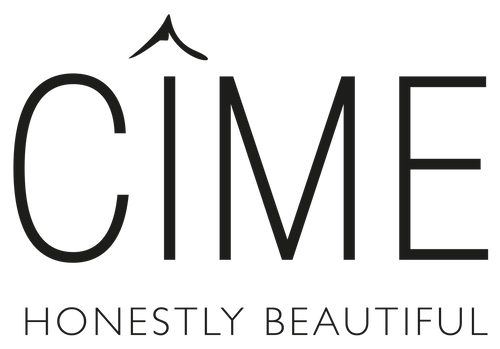Protecting our planet is one of our main goals at CÎME. We want to keep our ecological footprint as small as possible. We work hard on this this by paying a lot of attention to several things ...
Packaging
Packaging is key! We ensure that all our packaging is recyclable. But we do more than that:
- The bottles of the ‘Nuts About You’ collection are made out of 100% post-consumer recycled plastic.
- The ‘Nuts About You’ hand & body wash and volume shampoo are also refillable. Refill it in one of our participating stores and receive a €4 discount.
- The new packaging of our day and night creams ‘Hydra-intense day & night cream’ and ‘Nutri-boost day & night cream’ is made of ocean waste plastic. We are the first Belgian brand to work with this material! Ocean waste packaging is packaging made of plastic collected from oceans, rivers and beaches. Read more here.
- Our First aid balm and Balm for lips & dry skin come in an aluminium package. Did you know that aluminium is 100% recyclable and recycles forever?
- All our labels and the tubes of our hand cream and body lotion are made of sugar cane based plastic.
- All the paper and cardboard we use comes from sustainable forests. Talking about forests ...
WeForest
Our aim is to evolve to a circular model, minimising our CO2 emission and the creation of waste. However, until we have reached that point, each year we calculate our total CO2 emission. To compensate for this emission, we help plant trees in the foothills of the Himalayas, together with WeForest. We chose to support the Khasi hills project.
This way, we can support the Khasi communities to restore their forest and to mitigate climate change in the foothills of the Himalayas. Here you can check out how many trees we have already planted.
Transportation
Besides that, we try to limit our transportation to a minimum. We work with superfoods from the Nepales Himalaya. These are mainly grown and harvested in areas in the Himalayas that are suffering from food shortages. This means that the local population depends on food imports from the Nepalese lowlands.
We use the small plains, which fly back empty after every food delivery, to transport our ingredients from the mountains to the lowlands. From there they are transported on the roof of public buses to Kathmandu, the capital of Nepal, where they are all collected to be shipped together to our laboratory.
We also ensure that the amount of ingredients we have to transport is as small as possible, so that we take up as little space as possible. We do this by having the first part of the production already done on site in Nepal. This way, we also support the local economy by offering employment.
Ingredients
Last but not least, our natural ingredients. Our Himalayan superfoods are grown and harvested in a sustainable and organic way. We work with our Napelese partners to find sustainable ways to harvest the mountain plants we use, taking into account all ecological, social and ethical factors.


Back to Blog